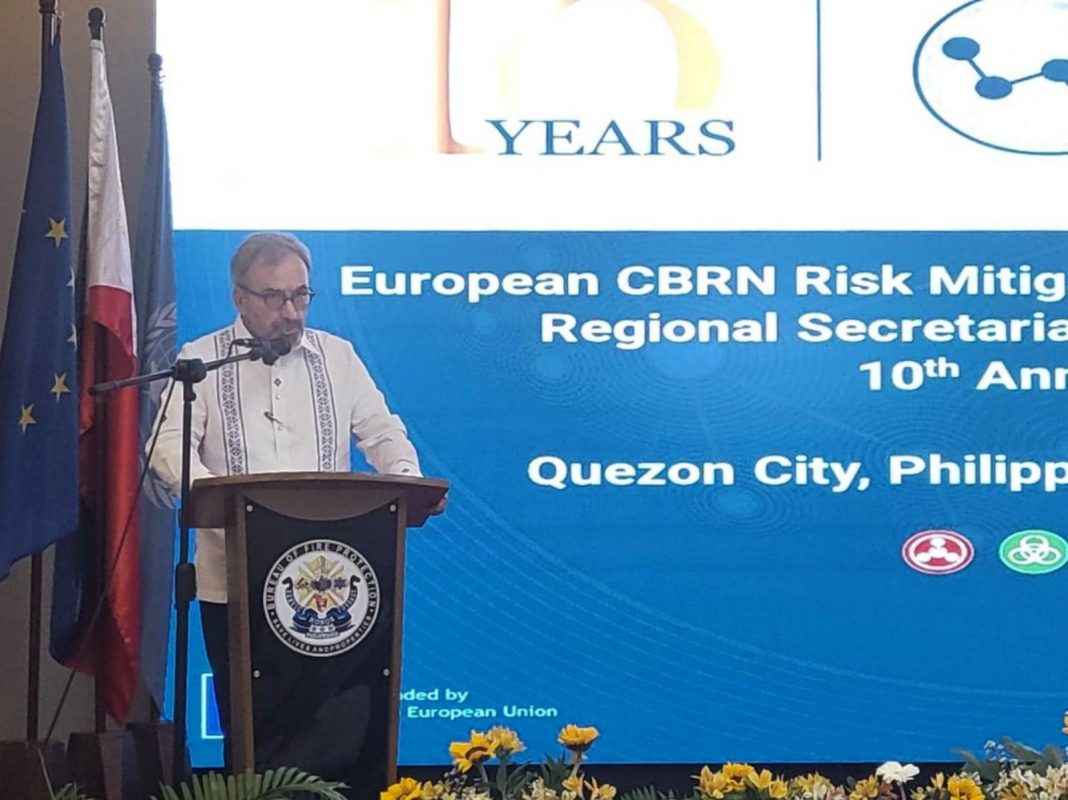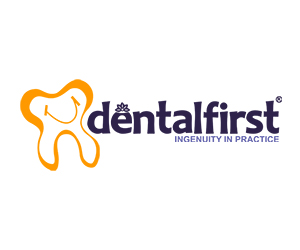Luc Véron, ambassador of the EU Delegation in the Philippines commended the Philippines government for hosting the regional Chemical, Biological, Radiological and Nuclear (CBRN) Risk Mitigation Centres of Excellence (CoE) Initiative.
In his speech, Véron expressed his elevation in the celebration of the 10th anniversary since the official opening of the Southeast Asia Regional Secretariat of the CBRN held at the Bureau of Fire Protection National Headquarters Annex Building in Quezon City on March 23.
“I am delighted this morning to open this very special event on behalf of the European Union.
Today, we come together to celebrate 10 years since the official inauguration of the Regional Secretariat for Southeast Asia, one of eight regional secretariats established within the framework of the European Union Chemical, Biological, Radiological and Nuclear Risk Mitigation Centres of Excellence Initiative.
In view of this important milestone, let me first thank the Government of the Philippines for having hosted the CBRN Centre of Excellence Regional Secretariat for Southeast Asia since its opening on March 6, 2013.
Thanks to this long-term cooperation, and in the spirit of the European Union’s goal to promote peace, stability and conflict prevention, the Government of the Philippines has helped strengthen and fortify the Southeast Asia region’s capacity to collectively prevent, detect and respond to CBRN emergencies, whether natural, accidental or criminal in origin.
Moreover, in doing so, the Government of the Philippines has helped all countries be better prepared to mitigate CBRN risks, risks that “do not stop at borders”.
Indeed, if the world needed further evidence of why we must work together to address CBRN risks, the COVID-19 pandemic, which has, to date, resulted in 760 million cases and 6.9 million deaths, provides an acute example that a threat to one country is a threat to all countries. We must therefore work collectively to better understand the risks we face and to take decisive action to be better prepared.
It is in this spirit of working together towards a safer and more secure world that the European Union commends the governments of the Philippines and the other ASEAN nations for their commitments as well as their coordinated approach to mitigate CBRN risks.
Collectively, the EU CBRN Centre of Excellence Partner Countries in Southeast Asia, represented in the room today by National Focal Points from across the region, have demonstrated a profound commitment to take collective action to strengthen national, regional and transregional CBRN risk mitigation capacity.
Since the inception of the Initiative, ASEAN countries have established inter-agency CBRN National Teams, worked to identify and prioritize critical actions for capacity-building and engaged in more than 30 regional projects covering areas from chemical and biological security to CBRN first response training to strategic trade controls.
Therefore, on this day, we come together to not only celebrate the 10th anniversary of the Regional Secretariat for Southeast Asia, but also to take stock of and to applaud the many achievements of all Partner Countries in the Southeast Asia region. It is testament to your hard work and dedication that we have come so far.
At the same time, let’s be conscious that a lot remains to be done. There is room for improvement to coordinate more efficiently at the regional level, let alone at the transregional level. Risks are evolving and new challenges are coming up. Technology is advancing rapidly, ranging from progress in biotechnology to the growing use and availability of drones, artificial intelligence or quantum computing. These technologies present new opportunities but also new avenues for accidents and potential misuse. Furthermore, CBRN risk mitigation is connected to maritime security and safety, the protection of critical infrastructure, border and export controls, and much more. In addition, the effects of climate change exacerbate the CBRN risk.
This growing complexity is one more reason for the EU to believe that the CBRN Risk Mitigation Centres of Excellence Initiative with its holistic approach is the right way to address these challenges.
Working together also means strengthening partnerships with regional and international partners, from ASEAN to UN agencies to individual UN Member States, who work to mitigate CBRN risks through their own programs and projects. For this reason, the EU and UNICRI, which supports the implementation of the CBRN Centre of Excellence, are continuously seeking to share information with regional and international partners and to find new ways of productive exchange and collaboration.
The EU funds the CBRN Centre of Excellence under its cooperation instrument called Global Europe, which identifies CBRN risk mitigation as a priority to address global and transregional threats and challenges.
“We believe that mitigating CBRN risks not only contributes to ensure the safety and security of our populations and industries, but also to the Philippines,” he said.
The EU funds the CBRN Centre of Excellence under its cooperation instrument called Global Europe, which identifies CBRN risk mitigation as a priority to address global and transregional threats and challenges.
We believe that mitigating CBRN risks not only contributes to ensure the safety and security of our populations and industries, but also to prevent the disruption of global supply chains, which is key to our collective prosperity.
Therefore, the EU Indo-Pacific Strategy underlines that the EU CBRN Centre of Excellence will continue to support partners and regions in strengthening CBRN risk mitigation and all-hazards security governance, following a voluntary and demand-driven approach.
The Plan of Action of the ASEAN-EU Strategic Partnership (2023-2027) also foresees that the EU and ASEAN will “enhance cooperation in mitigating risks associated with chemical, biological, radiological, and nuclear materials building on the achievement of the EU CBRN Risk Mitigation Centre of Excellence Initiative and exploring collaboration with the Network of ASEAN CBR Defence Experts.”
Finally, our action is also fully in line with the Sustainable Development Goals. The EU CBRN Centre of Excellence addresses a number of them, especially SDG 3 (Ensure healthy lives and promote well-being for all at all ages), SDG 6 (Ensure availability and sustainable management of water and sanitation for all), SDG 11 (Make cities and human settlements inclusive, safe, resilient and sustainable), and SDG 12 (Ensure sustainable consumption and production patterns).
Ladies and gentlemen, on behalf of the European Union, let me thank you for being here today.
Together let’s celebrate the 10th anniversary of the opening of the Regional Secretariat for Southeast Asia of the EU CBRN Centre of Excellence.
Let’s applaud our collective achievements.
Let’s prepare for the challenges ahead of us.
Congratulations and happy birthday!














